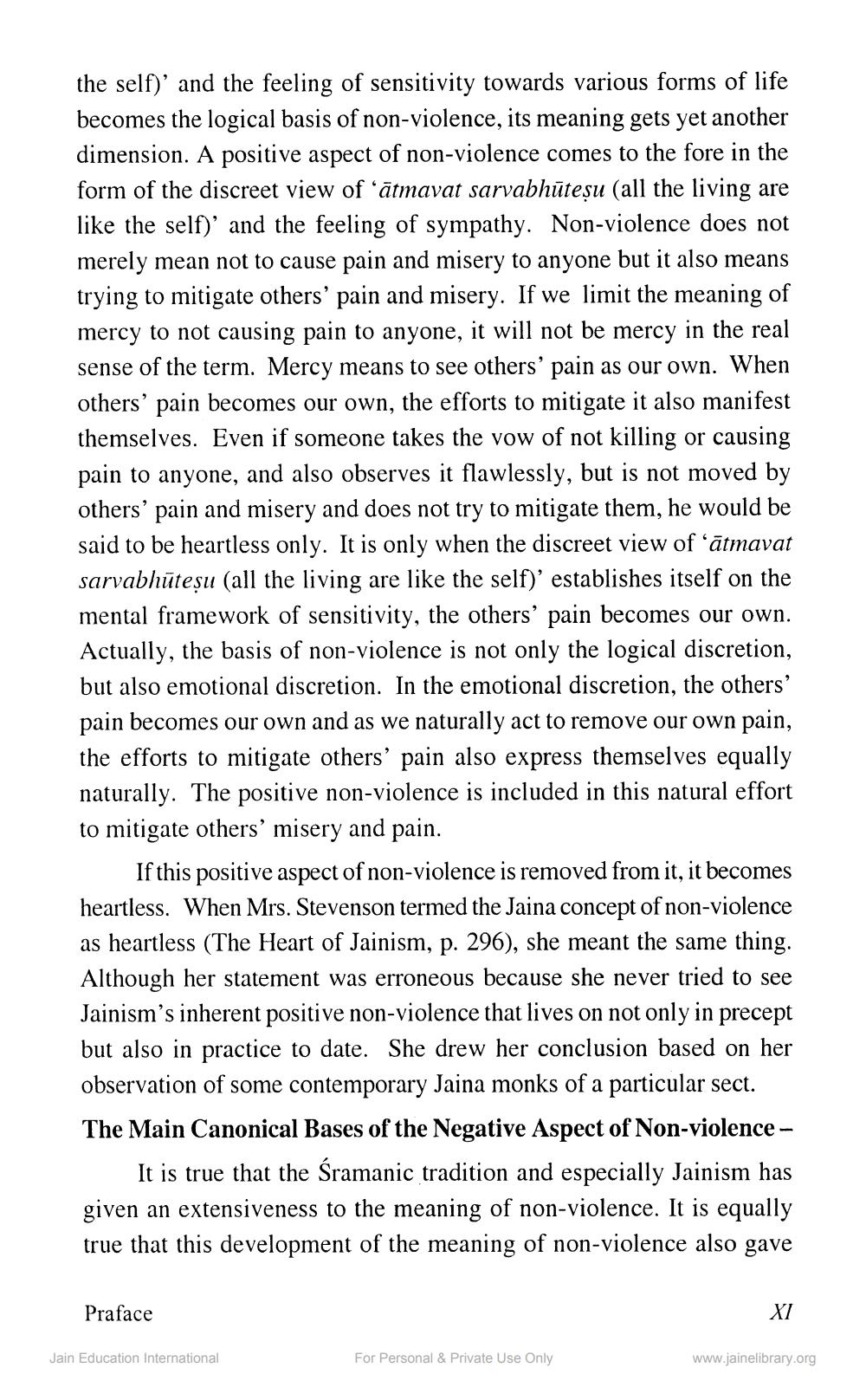________________
the self)' and the feeling of sensitivity towards various forms of life becomes the logical basis of non-violence, its meaning gets yet another dimension. A positive aspect of non-violence comes to the fore in the form of the discreet view of 'ātmavat sarvabhūteșu (all the living are like the self)' and the feeling of sympathy. Non-violence does not merely mean not to cause pain and misery to anyone but it also means trying to mitigate others' pain and misery. If we limit the meaning of mercy to not causing pain to anyone, it will not be mercy in the real sense of the term. Mercy means to see others' pain as our own. When others' pain becomes our own, the efforts to mitigate it also manifest themselves. Even if someone takes the vow of not killing or causing pain to anyone, and also observes it flawlessly, but is not moved by others' pain and misery and does not try to mitigate them, he would be said to be heartless only. It is only when the discreet view of ‘ātmavat sarvabhūteșu (all the living are like the self)' establishes itself on the mental framework of sensitivity, the others' pain becomes our own. Actually, the basis of non-violence is not only the logical discretion, but also emotional discretion. In the emotional discretion, the others' pain becomes our own and as we naturally act to remove our own pain, the efforts to mitigate others' pain also express themselves equally naturally. The positive non-violence is included in this natural effort to mitigate others' misery and pain.
If this positive aspect of non-violence is removed from it, it becomes heartless. When Mrs. Stevenson termed the Jaina concept of non-violence as heartless (The Heart of Jainism, p. 296), she meant the same thing. Although her statement was erroneous because she never tried to see Jainism's inherent positive non-violence that lives on not only in precept but also in practice to date. She drew her conclusion based on her observation of some contemporary Jaina monks of a particular sect. The Main Canonical Bases of the Negative Aspect of Non-violence -
It is true that the Sramanic tradition and especially Jainism has given an extensiveness to the meaning of non-violence. It is equally true that this development of the meaning of non-violence also gave
Praface
XI
Jain Education International
For Personal & Private Use Only
www.jainelibrary.org




